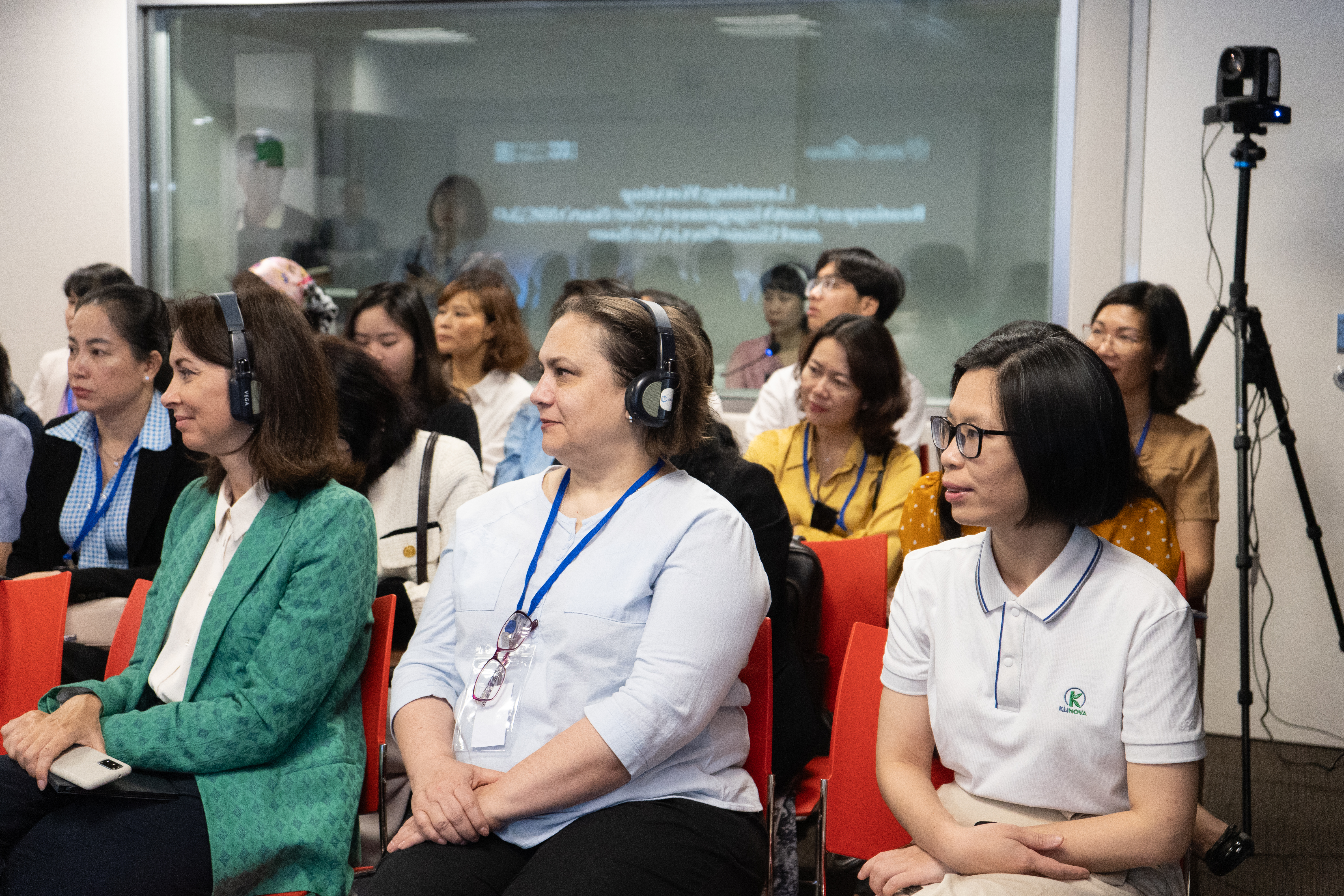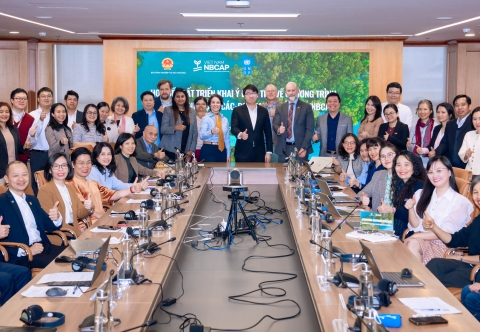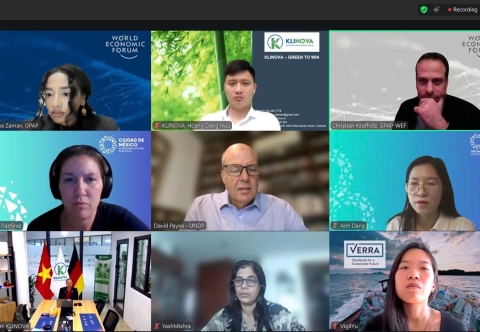The event was honored by the presence of Ms. Amina J. Mohammed – United Nations Deputy Secretary-General, and Ms. Ramla Khalidi – UNDP Resident Representative in Vietnam, underscoring the strong commitment of international organizations to advancing youth engagement in climate action.
Strengthening Youth Roles in Implementing National Climate Commitments
In his remarks, Mr. Nguyễn Đức Huy, representative of the Department of Climate Change (DCC), emphasized that youth are not only among the most vulnerable to climate change but also possess significant potential to drive innovative solutions and lead community-based actions. The development of this roadmap represents a systematic effort to define the roles, responsibilities, and significant participation opportunities for youth in climate policy making and implementation.
Launch of the Youth4NDC Roadmap
The Youth Policy Working Group (YPWG) played a central role in developing and implementing the “Youth4NDC Roadmap”, which was officially launched during the event. Representatives Mr. Đào Mạnh Trí, coordinator of the JET group, and Ms. Nguyễn Thị Hà, coordinator of YPWG, introduced the road map's key components:
A notable highlight of the roadmap is its orientation toward a series of continuous activities leading up to COP30, where Vietnamese youth are expected to present their perspectives and solutions on global platforms by the end of 2025.
Additionally, the “Road to COP30” action program, initiated by the Vietnam Youth for Climate Action Network (YNET), was introduced to the participants. Built upon three pillars – capacity building, engagement, and scale-up – the program spans across education levels, public communication campaigns, and regional workshops. It aims to create a knowledge-based and inclusive platform for youth-led climate actions.
Launch of Climate Box: A Comprehensive Climate Education Toolkit for Vietnamese Youth
As part of the event, UNDP Vietnam and partners officially launched the Climate Box Toolkit tailored to Vietnamese youth. The toolkit includes: a climate-integrated textbook, interactive quiz games, climate maps, posters illustrating adaptation and mitigation solutions, and detailed guides for educators to integrate the content into school curricula.
The development of this toolkit reflects a trend toward institutionalizing climate education within the national education system, directly contributing to the long-term goals of NDC 3.0 in raising awareness and fostering behavioral change among the younger generation in Vietnam.
Policy Dialogue and Messages from the United Nations
A policy dialogue on youth engagement in NDCs revolved around four main pillars: Just Energy Transition (JET), Circular Economy (CE), Climate Change Education (CCE), and Nature-based Solutions (NbS). Participants agreed on the necessity of systematically incorporating youth in policy making, backed by evidence of their expertise, capacity, and the sustainability of youth-led initiatives.
Concluding the event, Ms. Amina J. Mohammed, UN Deputy Secretary-General, reaffirmed the central role of youth in global climate strategies. She emphasized that to be recognized as policy partners, youth must demonstrate competence, expertise, and genuine motivation—qualities that Vietnam is well-positioned to cultivate and lead within the region. She further urged for concrete, practical, and impactful youth-led actions that can substantially contribute to national policy discussions.
The event also welcomed the attendance of Ms. Nguyễn Thị Minh Huệ – Project Director at KLINOVA, representing the innovative and sustainability-oriented private sector. KLINOVA’s presence signaled a strong interest in youth-led climate initiatives and reflected the company’s long-term commitment to supporting community-based actions aligned with Vietnam’s Sustainable Development Goals. In the context of an increasingly interconnected response to climate change, such multi-stakeholder cooperation is more vital than ever.

Ms. Nguyễn Thị Minh Huệ (on the far right) – Project Director at KLINOVA
The event marked a critical turning point in how youth participation is approached within Vietnam’s climate policy landscape. Moving beyond communication campaigns or short-term activism, the Youth4NDC Roadmap is an institutional component with the potential for long-lasting national capacity building in climate governance.
As Vietnam prepares for upcoming international collaboration programs and enacts binding climate commitments, empowering youth and establishing effective participation mechanisms will be instrumental in realizing an inclusive, just, and green transition strategy.
 Meeting to propose the implementation of the Letter of Intent for the National Green Carbon Action Partnership Program (NBCAP)
Meeting to propose the implementation of the Letter of Intent for the National Green Carbon Action Partnership Program (NBCAP)
 Online Workshop on the Financing Roadmap for Plastic Action to 2030: Mobilizing USD 8.5 Billion for Viet Nam’s Circular Economy
Online Workshop on the Financing Roadmap for Plastic Action to 2030: Mobilizing USD 8.5 Billion for Viet Nam’s Circular Economy